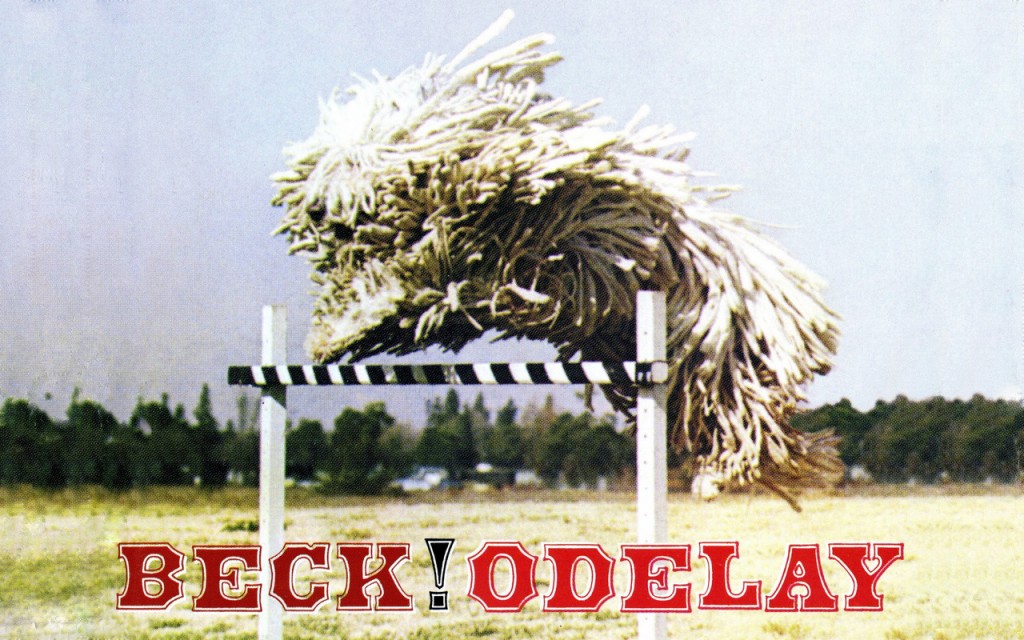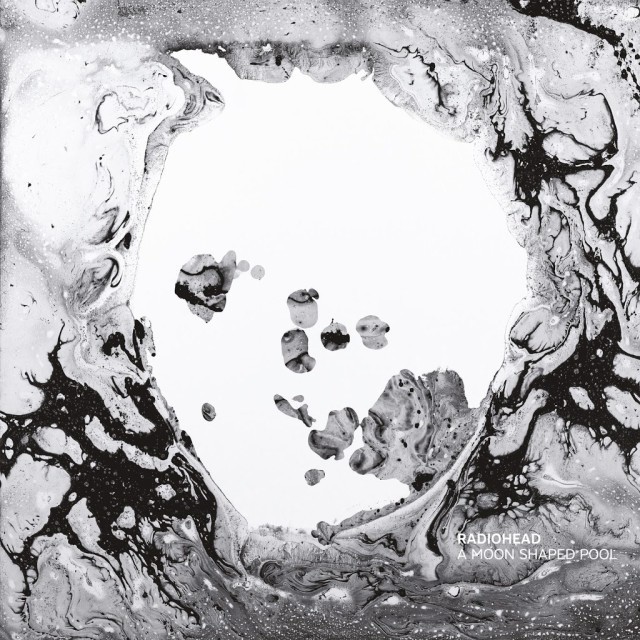by: Michael Shields and Chris Thompson
Arcade Fire’s latest release, Everything Now, takes aim at the ills of modern civilization, without losing an ounce of empathy for a humanity that is being quickly transformed by the Technological Age…

It has taken us here at Across the Margin a few weeks to fully digest Arcade Fire’s latest album, Everything Now. This lengthy absorption period isn’t due so much to the album’s complexity, or even its broadened sociological scope, but rather it is due to the challenge of comprehending the instancy of the album. Arcade Fire’s music has always dealt with weighty themes, whether it be the afterlife and spirituality, the reality of an experience, the transitory power of love, the pursuit of justice, or the pain that we all must face while we endure this thing called life. But Everything Now finds Arcade Fire living in the moment, chronicling the status quo as they comment on the current issues facing our time. Whether examining the struggles of a society consumed by technology and the media, or harping on a civilization warped with narcissism and anxiety, Arcade Fire is attempting with Everything Now to breathe deeply of the offensive airs that surround us, and exhale the feeling of the moment. To fully understand such a bold musical endeavor one needs to take a period of reflection, and allow some time in order to properly soak it in.
While we’ve been considering Arcade Fire’s latest offering, the reviews (sans ours!) of Everything Now have poured in, and many have been far from kind. Spin described Everything Now as the “band’s first outright debacle,” and their narrow-minded lead-off criticism was that “Arcade Fire listeners don’t come for supposedly incisive social critique.” Another Spin writer described the album as “deeply cynical” and “joyless.” Spin is far from the only outlet that chose the contrarian viewpoint of denouncing a release from an exceedingly popular band, or we argue – missing the point of the album entirely. Pitchfork concluded that Arcade Fire are ”trapped in lyrical and musical stasis.” The Boston Globe contested that Arcade Fire has “doubled down on snotty yet trite social criticism” and has “lost itself during a recent transition to cynical dance-rock.”
Groundless critiques such as these reek of an attempt to pigeonhole an exceptionally dynamic and evolving band. They suggest that Arcade Fire isn’t allowed to, or are not capable of, injecting sharp and poignant topical social commentary into the confines of their passionate arena rock. It is here where we at Across the Margin cannot help but wonder why it is that Arcade Fire wouldn’t be (or shouldn’t be?) influenced and affected by the collective dread that is rapidly consuming the world. Why would one of the most important rock bands of our times, that has found a way to both wow its fans at every turn and mature as time progresses, stand on the sideline in these perplexing times, simply echoing the sentiments of their past releases? Let’s face it, this isn’t Arcade Fire’s first foray into the world of social criticism. They’ve done it in the past on albums such as 2007’s Neon Bible, where the band cast their gaze outward, rebuking the government, the military, the church, and entertainment in general, and on 2010’s The Suburbs, where Arcade Fire turned inwards and spoke passionately of not wasting your adulthood idealizing your wasted childhood and of the life-affirming message that we’re all in this together. We have come to expect, and welcome, biting critiques and deadpan honesty on Arcade Fire albums, and its appearance on Everything Now should come as no surprise to seasoned fans.
In an unprecedented time when the effortlessness of technology has a firm grip on all those who dance within its grasp, the leader of the free world is an unpredictable egomaniac in mental and physical decline, and when humanity stands on the precipice of the unknown, it is within this moment that Arcade Fire exists as well. Everything Now is brimming with bold new sounds and unorthodox ideas, existing at the tip of the spear as it plunges into the uncertainty that is our collective future. While Radiohead’s Ok Computer and Kid A and Grandaddy’s The Sophtware Slump accurately predicted the effects that technology would eventually have on its users decades ago, Everything Now lives in this moment. Our moment. The album endures in a unique point in time, literally ten years after the invention of the iPhone, when the time has come for humanity to take a step back—if we are able to—and ponder what we have done to ourselves, and to our society. Arcade Fire seeks to remind us that where we’ve gone doesn’t look or feel good. But, as Everything Now undoubtedly expresses, that doesn’t mean we can’t dance all the while.
“Every inch of space in your head / Is filled up with the things that you read / I guess you’ve got everything now,” Win Butler sings on Everything Now’s title track, the axis that the entire album revolves around. Everything Now manifests itself as a singular piece of art, as one song bleeds effortlessly into the next, creating a unique collection of uninterrupted, yet all-consuming “infinite content” (which keeps us distracted or “infinitely content”), a purposeful nod to the album’s primary thematics. It is evocative thematics such these that cleverly reveal themselves on “Signs of Life,” a ‘70s era disco funk extravaganza, and on “Creature Comfort,” a song resplendent with a thumping bassline and hypnotic yet paradoxically uplifting melody perfectly describing the discouraging aspirations of the modern, YouTube obsessed narcissistic youth: “God, make me famous / If you can’t, just make it painless.” “Creature Comfort” is a strikingly appealing track that’s as danceable as it is alarming in its honesty and the ways in which the band references itself, especially when lead singer Win Butler shouts, “Assisted suicide / She dreams about dying all the time / She told me she came so close / Filled up the bathtub and put on our first record.” It’s a daunting to digest yet eye-opening song, one that imagines the teenager of today asking herself as she stands in front the mirror: if I can’t be famous, it is really worth living?
The trick, the unique facet of Everything Now, that allows the album to transcend its musical confines and deliver its message in a way that’s wholly palpable, is that the album is terrifically buoyant. It is an album flush with songs that quicken the pulse and, in a live setting, pull you deeply into its world. Produced by Arcade Fire with heavy influence coming from co-producers Thomas Bangalter of Daft Punk, Geoff Barrow of Portishead, Steve Mackey of Pulp, and the legendary Markus Dravs, Everything Now’s message, and energy, is largely unflappable, and its depth, undeniable.
Everything Now is bold and ambitious, both in its purpose and scope as the album attempts to take aim at the rising level of detachment that is running rampant across the globe due to the surge of technological obstruction. However, as the album draws to its conclusion, it cuts to the core of matters in the most resolute and touching of ways, with a six minute ballad entitled “We Don’t Deserve Love.” This is a song about a man reluctantly driving back to a homelife that is threatening to fade away, one where what awaits him is a partner who shies away from both verbal (“you don’t want to talk”) and physical (“you don’t want to touch”) contact. Where things have become so broken that the song’s protagonist can be found “hiding [his] scars in broad daylight bars / Behind laugh tracks on TV.” It is surrounded by this heartfelt conclusion to the album where we come face-to-face with the point of Everything Now, the forgotten humanity in all of us that resides behind our modern distractions and noise, a seemingly obvious truth that Arcade Fire have been laboring for thirteen tracks to remind us of. For it is people who are hurting in our uncertain times, individuals whose souls are burdened by the weight of lofty technological advances and massive changes in our societal norms. Everything Now may be an album about information overload, but it’s also optimistically self-aware, cognizant that it is both a part of the problem and a part of the solution, but in the end, like all Arcade Fire albums, it’s an album rife with humanity, and charged with empathy towards the human spirit, a spirit Arcade Fire so brazenly posses. Despite its deeper message, Everything Now is a flat-out fucking rocking album when it means to be, and while the album’s detractors may not be on board with the idea of a socially conscious and appropriately despondent Arcade Fire, this is exactly the version of the band we all need right now.
.






